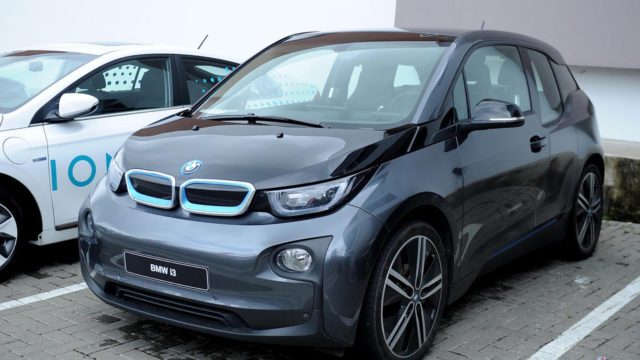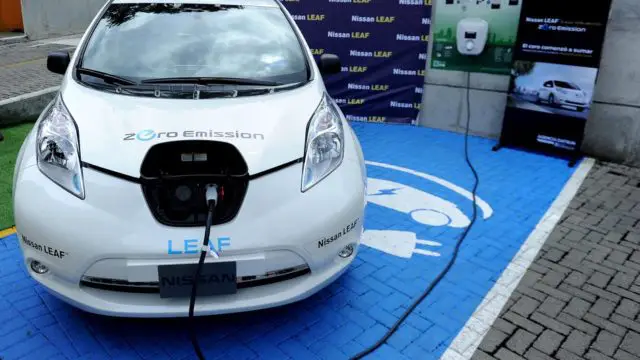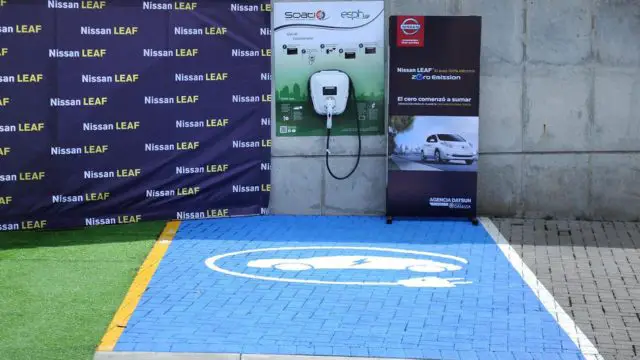| Say goodbye to gas stations, oil changes, filters, maintenance of the exhaust system, and spark plugs. Now it will depend 100% on electricity and on a regular check-up of brakes and tires. What do you think of this idea? Well, let’s start by pointing out the ultimate purpose of electric cars: saving money while contributing to the environment, by leaving aside the use of fossil fuels. 2018 could be the great year of consolidation for this kind of vehicles. Major brands such as BMW, Nissan, and Hyundai will start the importation of electric cars, and there are already 15 electric stations in Costa Rica (charging stations), although it is expected that more of them will be built in the short and middle term. There is even a bill proposal, that seeks to exonerate them from taxes, in process at the Legislative Assembly. |

Of course, the adoption of this technology depends largely on how much the costs of purchasing a car of this type can be lowered. Otherwise, they will run the risk of being stored in car agencies and tagged as “luxury cars”, due to prices that today exceed US$ 38,000.
No Major Maintenance Required
Electric cars will start being really close for most Costa Ricans in the upcoming January 2018, when these vehicles will be available on practically all of the car agencies along the country. Previously, those interested in buying this type of vehicle had to import it on their own.
The average travel time of the electric cars is 250 kilometers and with charging times (depending on the voltage used) that range between 2 and 4 hours. The difference these vehicles have is that they do not need the typical maintenance which gasoline vehicles require. In this regard, electric cars depend only on brakes and tires check-ups, according to their manufacturers.
One of the most frequently asked questions (FAQ) is about battery operation; “if the battery breaks down, is it like changing the engine to a conventional car?”. The response of the representatives of the brands consulted was: SIMPLY NOT. These vehicles have a battery with a useful life of around 8-10 years and, in case of any problem, it is mainly made by cells. That is, the battery will be checked up so only the damaged cell is changed.
The Arrival of Electric Cars to Costa Rica
With the opening of the 15th electric station in Costa Rica, which is located in Torres de Heredia, the road that electric cars have to travel to establish themselves in the country was already announced.
Exoneration
At the Legislative Assembly is introduced the Electric Transportation Bill N° 19744. This bill aims to promote the supply and demand of electric vehicles under favorable conditions that allow lower prices for consumers of those units.
The bill refers to 100% electric vehicles with zero-emission technologies which do not contain combustion engines, whether they are new or used, and with an antiquity of up to 12 months.

For example, a vehicle that costs US$ 30,000, would have a 100% exoneration in the sales tax, 100% in the selective consumption tax, and 100% in the customs value tax.
It would also apply incentives such as the 10-year exemption for parts and spare parts of electric vehicles. It also exonerates 100% of the Right of Circulation or property tax (marchamo) for the first 5 years, will not be subject to vehicular restriction nor pay parking meters, and may park in special spaces called “blue parking”.
The BMW company, by realizing that the legislation has not advanced significantly, decided to lower the price to its electric model BMW i3 from now on. This model went from having a cost in its economic version of US$ 67,500 to US$ 55,000. This value would no longer change if the exonerations are applied.
Similarly, the Nissan Leaf model is a vehicle that will be available on next January 2018. It has a price starting at US$ 39,500 but, eventually, its price could be lowered in case of the creation of that law thrives.
Charging Stations
To encourage the use of electric vehicles, in addition to the vendors and the incentives to lower costs, an infrastructure is also needed that gives confidence to the user that these vehicles will not be left without a load on the road.
For this, the installation of electric stations or charging stations throughout the country is being encouraged. At the moment there are already 15 installed.

The most recent inauguration was carried out by the Public Services Company of Heredia (ESPH), which is located in Torres de Heredia. The charging device is Siemens brand, with an electric intensity of 30 amps which can charge 7.2 KiloWatts per hour (kWh).
For an average 30 KiloWatt-sedan-vehicle, 3 hours are enough to reach 80% of charge capacity, with an expense lower than ¢ 2,000, and an autonomy of almost 250 Kilometers. The approximate expense for the same distance on a gasoline vehicle is ¢ 15,000.
